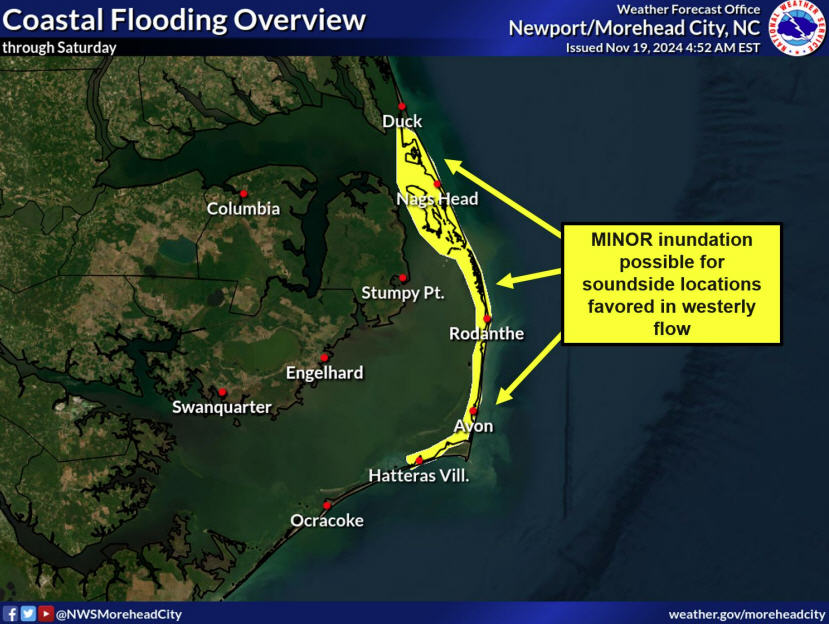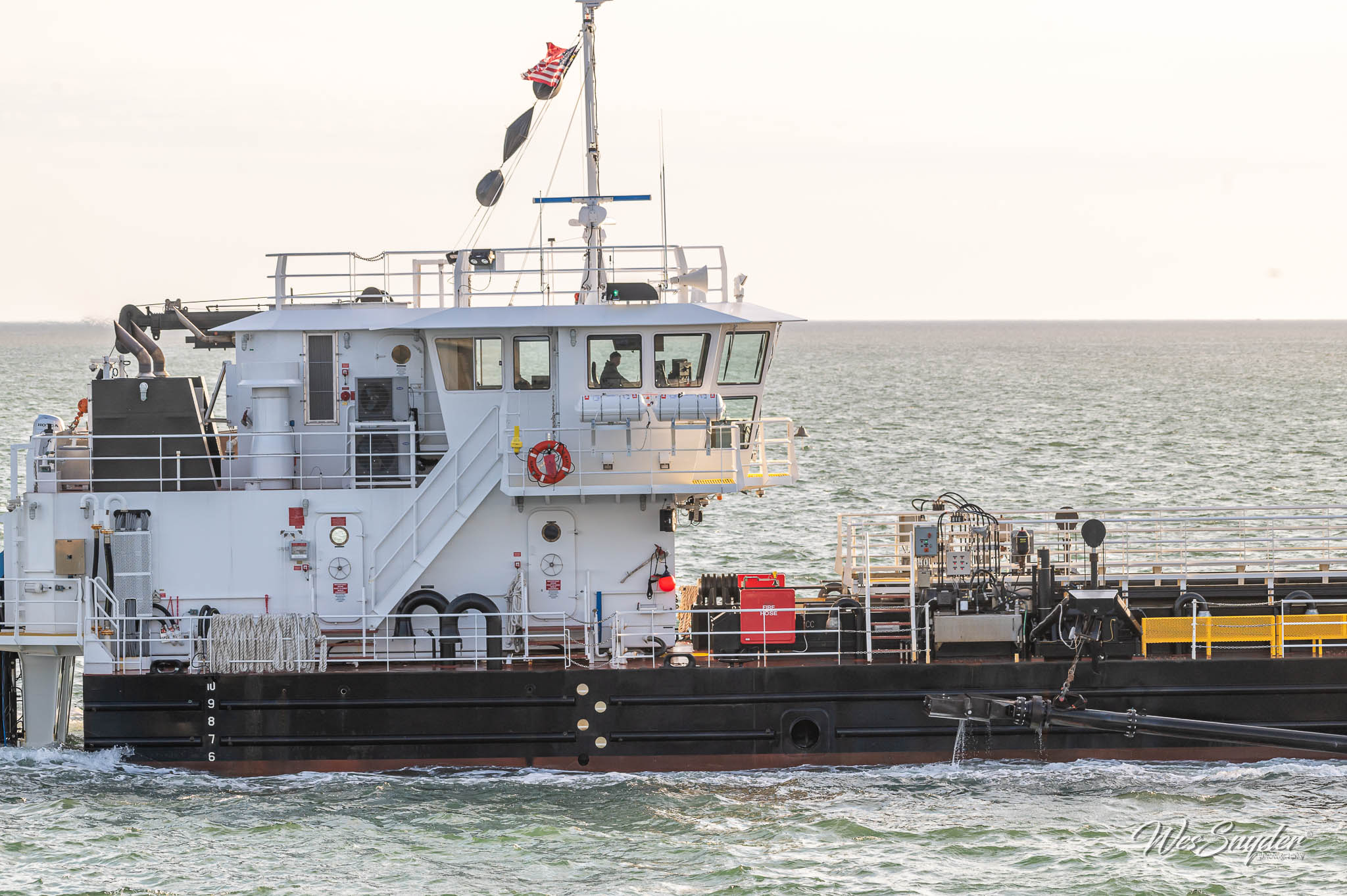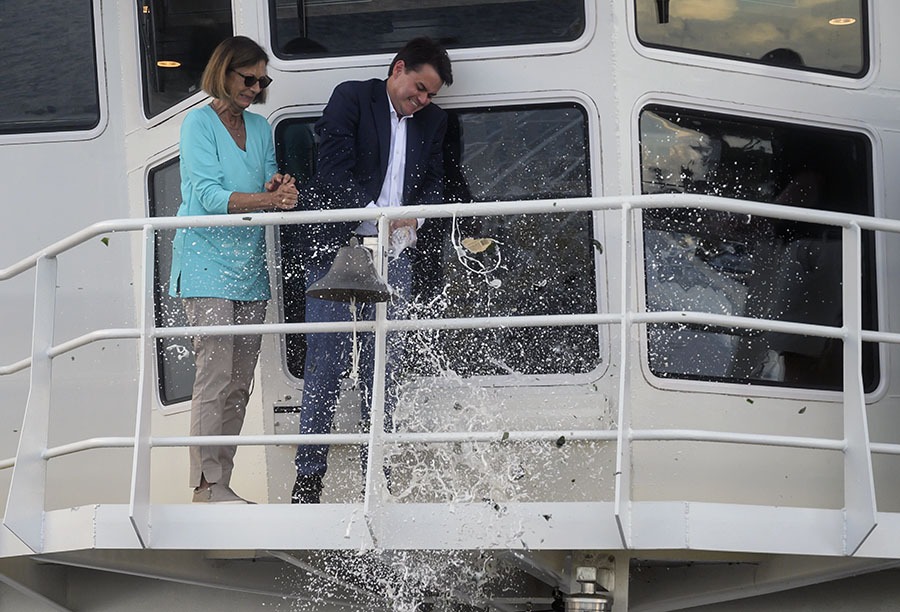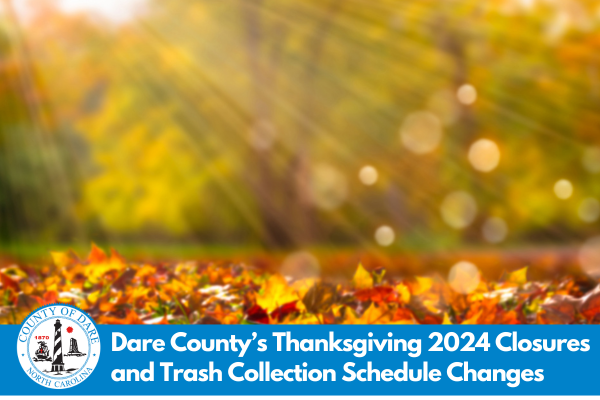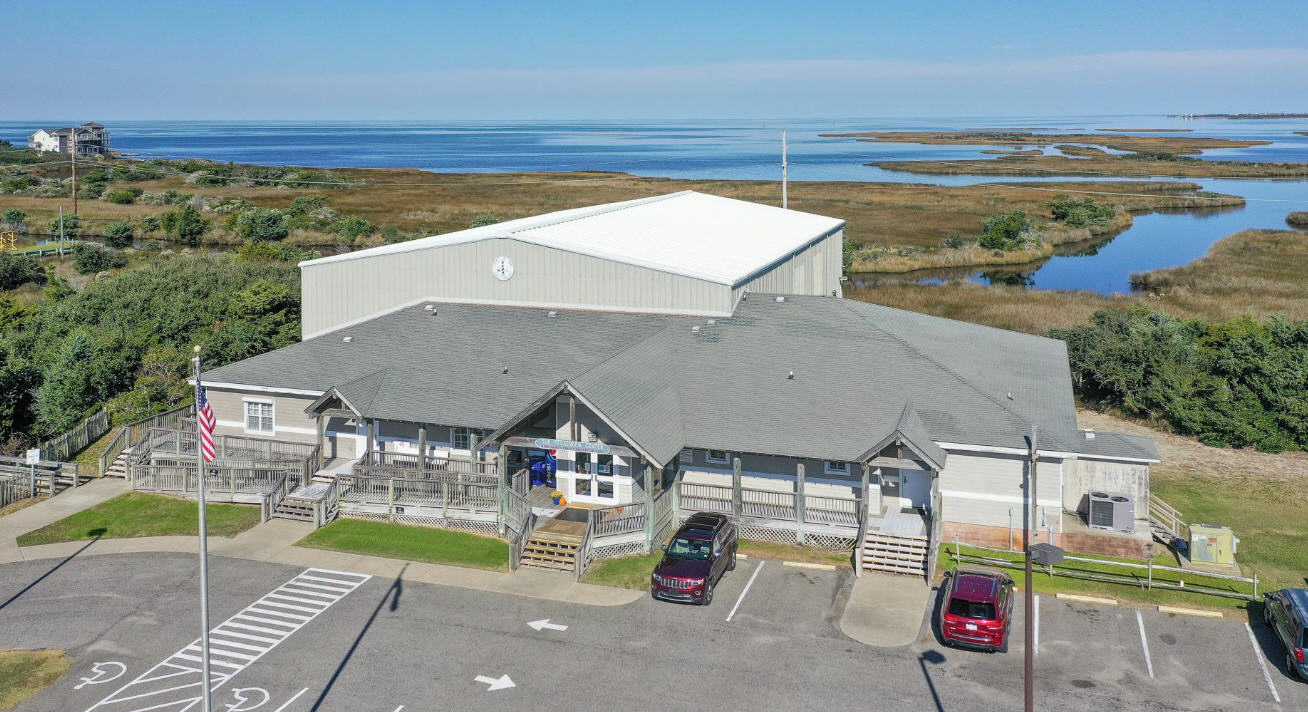Questions for the Dare County Commissioner Candidates: District 4, Ballance and Havel
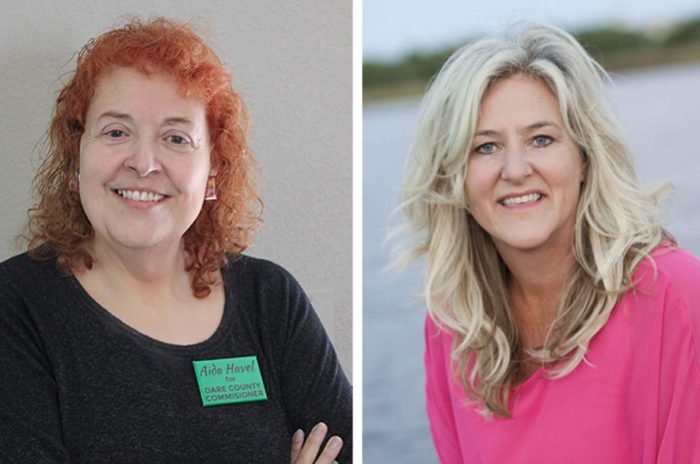
As a service to voters during the 2024 general election, the Island Free Press asked each of the candidates running in the three competitive Dare County Commissioner races to answer questions on various issues affecting Hatteras Islanders.
The General Election is November 5, 2024, although early voting is available at the Fessenden Annex as of Thursday, October 17.
Below are answers from the two candidates running for the District 4 race – Mary Ellon Ballance and Aida Havel. This is a soon-to-be open seat, as current Commissioner Danny Couch will be retiring at the end of year.
The District 4 commissioner represents Hatteras Island, but commissioners for all races are elected at-large and appear on all ballots in Dare County.
Answers to the eight Hatteras Island-centric questions are listed below. The answers are published in full and have not been edited for length or content.
Question 1: What skills, assets, etc. will you bring to the table as part of the seven-member Board of Commissioners?
Mary Ellon Ballance: The skills and assets I bring to the table is the experience I gained serving for eight years as a member of the Dare County Board of Education representing Hatteras Island. Having served as chairman, vice chairman, and a board member, it didn’t take long to understand that in order to get things accomplished, you have to get at least three other board members to agree. It is incumbent upon you to work towards building relationships that are based on trust, respect, transparency, and dependability. Finding common ground coupled with common sense and a genuine desire to do what is best for the future of our county, is how we grow responsibly. Additionally, learning about funding and government finance, capital improvement processes, and policy creation/implementation has given me a strong foundation to serve effectively as a commissioner.
Aida Havel: As an attorney, I will bring the ability to analyze statutes, proposals, and contracts carefully, as well as the willingness to ask detailed questions when something isn’t clear or is contradictory. As a mediator, I will listen for what isn’t being said, and for what is really important to the speaker (tip: if someone mentions something twice or more, it is important to them!) And after we clarify the issues and understand their ramifications, I will seek to build consensus among the board members.
As a resident here, it is also important to me to help set a vision for Dare County. I’ve served on many boards, and the ones that have been most successful are those that have a clear idea of what they are doing and where they need to be as a board. In my opinion, we need to provide more oversight and leadership on housing, access to health care, and burdensome fishing regulations, and we have some work to do to reestablish trust and transparency with the citizens of Dare County. I believe I can bring focus and leadership on these issues.
Question 2: What will be your top priorities for improving Dare County and specifically Hatteras Island as a County Commissioner, and how will you tackle these missions?
Mary Ellon Ballance: There are several priorities for me county wide like housing, education, and fishing issues. One priority specific to Hatteras Island is access to basic healthcare. Living in Hatteras Village makes doctor visits a challenge. For example, if you are a new resident to Hatteras Island, there is no place for to establish a primary care physician on the island. Avon Medical Center is no longer taking new patients, forcing you to travel off the island and the hospital is the only facility that has the capability of providing 24-hour urgent care in Dare County. There is a building in Hatteras Village that was built as a medical center and currently houses Port Health. With proper planning, funding, and organization, it could once again be open to seeing patients for primary care full time. Keep in mind, before the medical center moved to Avon, the Dare County Commissioners supported an on-call service for residents of Hatteras Island at the Hatteras Medical Center and that on-call service created 24-hour availability for medical emergencies. So, how do we get there? First, Dare County could establish a “Healthcare Task Force” for Hatteras Island like they are doing in Manteo to begin the conversation. These two groups could collaborate and look at how they are working through similar issues in Manteo and explore the opportunity of a partnership that could be negotiated for county wide access to medical services. Second, there is room at the Hatteras Medical Center that could be turned into living quarters and that would enable us to bring in traveling doctors and nurses to help facilitate the medical needs on Hatteras Island including wellness checks, physical therapy, and an on-call service. Where there is a will there is a way and I welcome the opportunity to navigate a path to better health care for Hatteras Island and all Dare County residents.
Aida Havel: My first “tackle” will be to establish good lines of communication with the residents of Hatteras Island, the leadership of the National Park Service, and the wonderful employees of Dare County. My plan is to reach out to all of these stakeholders before I am sworn in by having a public meeting at the Fessenden Center to prioritize short and long term goals for Hatteras Islanders, meeting privately with Superintendent Hallac and his staff to make sure we continue to work cooperatively, and visiting as many of the Dare County Departments as possible to understand the minutiae of what they can and cannot do so that when folks ask me questions I can answer them semi-intelligently.
Anything deemed a “priority” is important, and I can’t put them in numerical order, but I want to make sure that the Buxton Beach remediation stays on track and that the Miss Katie dredge gets up and running again within the limits of the permits provided by the Army Corps of Engineers. (As I finish up these answers, on October 18, it has been ONE MONTH since the Army Corps of Engineers suspended her permits). I eagerly await the report of the Housing Task Force to see how we can move forward together on this very complicated issue. And I want to work with those who have an interest in health care to figure out a way to attract more health care professionals to Dare County, with one goal being an Urgent Care facility here on Hatteras. It’s way past time for that!
Regarding Hatteras Island specifically, there is a feeling, right or wrong, that we are sometimes forgotten by the rest of the county. Without being shrill or pushy, I intend to be an advocate for Hatteras Island residents and their needs and concerns. We need bridges, both real and metaphorical, between us and the rest of the parts of Dare County. We need equality in recreation facilities and county services. One way to make Hatteras Island less “forgotten” is to have more advisory board meetings here (I know we have some) and perhaps more open public meetings here on such issues as housing and health care.
Question 3: What is the best way forward for cleaning up the petroleum, contaminants AND infrastructure on Buxton Beach, and how will you facilitate this plan as County Commissioner?
Mary Ellon Ballance: Fortunately, this situation is moving forward much more rapidly than originally anticipated thanks to Brian Harris, Heather Jennette, Wendy Munden and the newly formed Buxton Civic Association. I am so proud of these guys. They saw a problem, organized, went to their local and state elected officials and made many aware of this dangerous situation. Currently, there is a contractor on site removing contaminated soil and infrastructure and weekly updates are being put out by Ron Sturgeon from the US Army Corps of Engineers. The tenacity of the Buxton Civic Association in combination with the support from the current Dare County Board of Commissioners worked for the people of Buxton and all that chose to visit the beaches by the light house.
Aida Havel: I’m not a scientist, and I think we need to let the Park Service take the lead here, but as the Buxton Civic Association has shown, community engagement keeps both us and the “cleaner-uppers” focused. One or two reports have been released, we are still waiting on several more, and we are still waiting on the establishment of a Restoration Advisory Board, which in theory is supposed to both keep us informed and listen to our input. That is something greatly needed. The BCA has accomplished so much in a little over half a year, and we and they must keep the momentum and progress going, which I believe is happening. We must make sure that the Army Corps of Engineers, the Navy, and the Coast Guard all do their parts until this beach is once again open to the public and can contend for a spot on Dr. Beach’s “Ten Best Beaches” list.
Question 4: How can Dare County help protect N.C. Highway 12 from flooding, and particularly in areas prone to ocean overwash such as Pea Island, northern Buxton, and northern Hatteras Village, as well as areas prone to soundside/rainwater flooding, such as the Tri-Villages, Frisco, and Hatteras Village?
Mary Ellon Ballance: Dare County can help protect N.C. Hwy 12 by advocating to protect our infrastructure but it has to be done at the state and federal level. As residents of Hatteras Island, we live in a US National Park, just like Yellowstone. We are very fortunate to have Dave Hallac as the Superintendent of the Park Service and he has already identified numerous areas that are in need of beach nourishment and is prepared to approve applications right away, but we also have to secure adequate funding. I have personally met with Superintendent Hallac and he is working hard to advocate for Dare County as he did with the situation in Buxton at the FUD site. I attended an Inlet & Waterways seminar earlier this year and learned that there are several different ways to combat flooding, storm surge and over wash and more solutions are being developed. We need to create thoughtful and deliberate plans of action and we should even consider that there could be multi-tiered solutions. I am excited for the opportunity to work on these issues.
Aida Havel: In early 2021, the NC Highway 12 Task Force was asked to develop a long-term plan to address areas on Highway 12 from Whalebone Junction to and including Ocracoke which were subject to frequent ocean over wash, dune breaches, and road closures due to unsafe conditions. Members of the task force included representatives from NC DOT, NPS, Dare County, Hyde County, and Pea Island Wildlife Refuge. In February 2023, the task force released its final report, identifying six “hot spot” areas and recommending both short and long-term solutions to each hot spot. Some of the short-term solutions have already been and are continuing to be implemented, such as reconstructing dunes in the “Canal Zone,” opening the Rodanthe Bridge to bypass the S-curves, beach nourishment in Buxton and Avon, and using sandbags in the area between Frisco and Hatteras. I would like to see where we are in terms of pursuing some of the long-term solutions, particularly at the Canal Zone, which is the gateway to all the rest of Hatteras and Ocracoke Islands.
I’d also like to see more consultation with local long-term residents here: those who surf, swim, and fish in the waters on an almost daily basis. Many of them have seen the ebb and flow of the sand, the deterioration of the groins, and the reshaping of the point. I’ve heard them speak, and they have acquired real-life knowledge of these problems which isn’t always available to a scientist with an advanced degree. There are many creative strategies to lessen the impact of erosion; we just have to find the right one or two, and I believe that those will be found by the right mix of people.
Question 5: Is there a solution for homes collapsing into the ocean in Rodanthe, (and possibly Buxton at some point in the future?) If so, what can Dare County do to help?
Mary Ellon Ballance: There are solutions, we may not always like the solution however, for the homes collapsing we need to work towards finding options that will allow the homeowner to have financial ability to remove the home prior to it collapsing. It will require possibly negotiating with insurance companies, creating zoning laws, working with state and federal officials and possibly all of the above. Currently, insurance companies will not pay out a claim on a property until it falls. The park service has purchased a couple homes and were able to take them down before they collapsed. Dare County will need to stay vigilant and open to initiating conversations with federal and state leaders to find realistic and actionable solutions.
Aida Havel: The Threatened Oceanfront Structures Interagency Work Group Report, released less than two months ago, provides multiple recommendations. It addresses opportunities for financial assistance for homeowners, how public and private insurance can help, and the role that legal and regulatory authorities play. In each of these categories, there are both short and long-term recommendations. Because the report is so recent, I don’t know what action(s) Dare County has taken on it, but it has certainly provided us with three avenues to pursue, and I would like to follow up on these recommendations. For anyone who is interested, links to this report can be found on Dare County’s government website.
An additional avenue to pursue is the bipartisan bill that our own Congressman, Greg Murphy, introduced in Congress just a few months ago. Entitled the Prevent Environmental Hazards Act, it would authorize the National Flood Insurance Program to allow advance payouts of up to $250,000 for demolition or relocation of structures that have been condemned or subject to chronic erosion. It also limits payouts to 40% of what would have been paid out if the owner fails to take action before the structure collapses. I do not know the status of this bill, but I will do everything in my power to advocate and lobby for it, as it is a commonsense way to deal with a problem that is not going to go away and is only going to get worse.
Question 6: As commissioner, how will you move forward in addressing the affordable housing issues in Dare County, and especially in unincorporated areas with a high volume of vacation rental homes like Hatteras Island?
Mary Ellon Ballance: I have been attending the Housing Task Force meetings, led by Donna Creef and Malcolm Fearing, for the past several months. One thing that continues to rise to the top is the bi-partisan bill that was signed in to law by Governor Beverly Perdue in 2004. The bill authorizes the Dare County Board of Education the ability to build teacher housing in three areas of Dare County. Because the legislation is already in place, it gives us the “path of least resistance” to build housing for teachers and government employees and that would free up long term rental opportunities for other residents. The task force has met with people in other resort areas like Park City, UT to see how they are handling these challenges as we are certainly not the only county struggling to combat the affordable housing issue. There is not going to be a one size fits all solution because our county is so diverse geographically and culturally. The incorporated towns are working through solutions including zoning changes that allow for more long term rental opportunities and the task force is working with representatives from each of the incorporated towns, two representatives from Hatteras Island, and other stakeholders. I am encouraged that we will see solutions.
Aida Havel: I’ve been to approximately 75% of the Housing Task Force meetings, and they are learning about this issue from all angles: the legal restrictions on building housing, local zoning tools that can be used, how other resort locations similar to ours are handling this issue, and what professional support and grants may be available to help us. I look forward to reviewing their end of year report and recommendations.
Regarding Hatteras Island, it is my understanding that there’s been a list made of all land on Hatteras Island that is owned by the county, and I’d like to see what parts of that might be usable. I’d like to figure out a way to either buy or condemn the land where the abandoned waterpark in Rodanthe sits. And I’d like to hear how full-time residents feel about a possible moratorium or some other type of restriction on short-term rentals.
Question 7: What can be done to address fishing regulations that many Hatteras Island commercial fishermen see as a growing and increasingly insurmountable challenge?
Mary Ellon Ballance: In order to address the fishing regulations that many commercial fishermen face, we have to first address the unbalanced NC Division of Marine Fisheries. This board was created in legislation and the members are appointed by the governor. North Carolina has had a Democratic Governor for the past eight years. That means liberal lobbyists and political agendas are fueling the demolition of the fishing industry and crushing our coastal communities. First, we have to go to our state legislators like Norm Sanderson, Bobby Hanig, and Ed Goodwin to advocate for all fishermen and start conversations that will require a needed push for change in legislation. Having served on the NC Div. of Marine Fisheries Flounder Advisory Panel for the development of Flounder Amendment 3, I saw first hand how the division works to smother our commercial, recreational, and charter/headboat fishermen by approving an amendment that is against the law according to state statute. So why don’t fishermen fight it? Because attorneys cost money and fishermen have enough just trying to pay cost of living. We need to sit down with organizations like NCWU and NCFA and continue to be a voice for these hard working men and women. Think about this, Dare County pays the state of North Carolina millions in tax revenue and we haven’t had representation on the commission in over 15 years. Several years ago, NCDMF Chairman Rob Bizzell stopped them from meeting in Dare County.
Next, we need to partner with other coastal communities up and down the east coast that are facing regulation at the federal level. In June of this year, the U.S. Supreme Court sided with fishermen to stop a regulation using the “Chevron deference” that would require fishing vessels to pay for observers and equipment to monitor their fishing operations. This was a huge win for commercial fishing. Federal Agencies have engaged in regulation without representation and it must stop.
Aida Havel: We MUST make our voices heard on this critical issue, and I will be a leader in this initiative. The regulations that I have seen for many different species of fish are burdensome, overreaching, and do not follow the statutes that they are supposed to be implementing. For example, the regulations are supposed to take into consideration the economic impact they will have, but they don’t. They are also supposed to measure the nursery of fish regularly before regulations are proposed, but in some cases, due to Covid, the nurseries have not been measured in five years. Meetings of the Marine Fisheries Commission are rarely held in Dare County, and none of the members are from Dare County. I am willing to make phone calls, write letters, show up to meetings, and advocate in any way possible for fairer treatment and more representation for our commercial fishermen who are so important to the economy and tradition of Dare County.
Question 8: What is one thing you that want voters to know about yourself that makes you stand out from your opponent?
Mary Ellon Ballance: There are a few things that voters should know. In a questionnaire by the League of Women Voters online forum that can be found on www.vote411.org, in my opponent’s final “Additional Information” answer she states “Even after a lifetime of living, I don’t have all the answers, but I know how to ask questions and how to listen thoughtfully. I have no agenda other than wanting to leave Dare County better than when I found it, and I will happily work with anyone who shares that goal.” This closing statement is a stark contrast to who I am as a resident of Dare County and Hatteras Island.
First, my opponent said “I know how to ask questions and how to listen thoughtfully”. I have owned a business in Dare County since 1999 as a nail tech. I am very well versed in listening thoughtfully. I see my clients monthly and they share their concerns, and their neighbors concerns, on many issues facing Hatteras Island residents including education, healthcare, internet access, ocean over wash, and much more. Hearing those concerns was a contributing factor to my decision to run for the board of education and continues as a contributing factor to my decision to run for Dare County Commissioner.
Second, my opponent wants to “leave Dare County better than when I found it”. Let me make this clear, I have no intention of EVER leaving Dare County. I found the beautiful village of Hatteras while on vacation and moved here in 1998. I met my husband, started a business and a family and over my 27 years here, involved myself in all aspects of the community. I want to be part of the Outer Banks culture, not to change it but to protect the things that make it so wonderful. Change is inevitable but that change should honor the heritage while securing the future for all Dare County residents.
Finally, my opponent “has no agenda” and will “happily work with anyone who shares that goal”. When you are elected to a local board, you don’t always have the luxury of working with people that share the same goals. You have to build relationships that allow your fellow commissioners to believe in your goals as much as you do and if you can’t, they have to respect you enough to want to try. I do have an agenda. I will fight for our commercial, recreational and charter/headboat fishermen at the state and federal level, and I will be a voice for accessible healthcare, education, and workforce housing. I have been a voice for the past 27 years and will continue to be a voice for my community, Hatteras Island, and all of Dare County.
Aida Havel: I know that we both love Hatteras Island and that Dare County is important to both of us. I’ll simply repeat what I’ve said throughout this campaign: my legal background gives me the skill set to read thoroughly, think critically, and ask probing questions. My professional experience in conflict resolution allows me to hear all suggestions and not be wedded to one particular one until we can explore all options and (hopefully) reach consensus. I also believe in open, transparent government and in providing oversight and accountability on housing, access to health care, and burdensome fishing regulations. I want to build bridges and work with anybody with a good idea, and I’m ready to move forward tomorrow!





